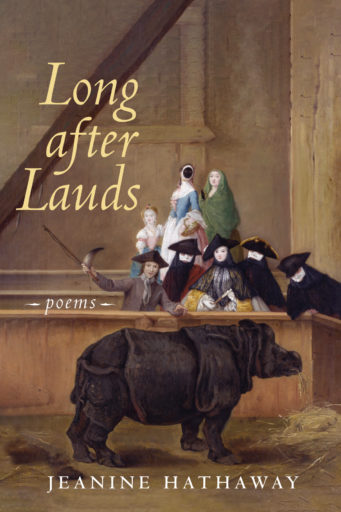

In the Unwalled City takes its title from Epicurus, who wrote: “Against other things it is possible to obtain security, but when it comes to death, we human beings all live in an unwalled city.”
| Hardcover | ISBN 9781639821150 | $29.00 |
| Paperback | ISBN 9781639821143 | $15.00 |
| eBook | ISBN 9781639821167 | $12.99 |
In the Unwalled City takes its title from Epicurus, who wrote: “Against other things it is possible to obtain security, but when it comes to death, we human beings all live in an unwalled city.” This affecting book—which weaves prose memoir with poetry—explores that feeling of being open to attack—in this case the pain of grief after Robert Cording’s thirty-one-year-old son Daniel died.
To borrow a phrase from C.S. Lewis, here is “a grief observed,” encompassing not only the big questions but also the impact of grief on daily life. For a poet like Cording, one form that grief takes is that of speaking to his son. In “Afterlife,” Cording has a vision of his son replying: “let the emptiness remain empty . . . Stop writing down / everything you think I’m telling you. / This is your afterlife, not mine.”
At the heart of In the Unwalled City is a series of questions: How does loss change a person? How does one chart a new life that both acknowledges a son’s death and still finds a way back to delight? How does one now live fully in the unwalled city?
In a long and rich career, Robert Cording—indifferent to and transcendent of any vogue—has persisted in addressing what I can only and inadequately label matters of the spirit. He’d surely be the last earthly soul to celebrate the death of a beloved son, “who is both not here, and not not here,” as occasion for his most powerful work to date. And yet it is that. And it is spiritual. To read In the Unwalled City is to have our hearts broken, poem after poem, even as we celebrate the deeper-than-deep humanity of its testimony. I’m simply aware of no recent poetry that matches it for mournful eloquence.
Sydney Lea, former Poet Laureate of Vermont
In a grieving father’s voice, both vulnerable and steeled, the poet writes, “My son is dead and done with me.” He talks to himself through hybrid prose and poetry and to himself while talking to his son and, almost as afterthought, to us. He avails himself (and his off-camera readers) of centuries of wisdom, but, mercifully, offers us no moral summas gleaned from his devastating experience. Cording’s bracing metaphors and sudden shifts of perspective distinguish In the Walled City from many memoirs of grief and loss. We come to poetry for just this: intimacy and awakening.
Martha Serpas, author of Double Effect
Throughout Robert Cording’s In the Unwalled City, one is immersed in the essence of duality—first, in a mingling of memoir and lyric—where language itself is an incantatory talisman against incredible loss yet unable to offer lasting solace. The title essay and collection of linked poems concerning the poet’s late son impart a gorgeous grief which simultaneously embraces remembrance while also seeking some means of forgetfulness at “an altar where all rationality had to be sacrificed.”
Claude Wilkinson, author of World Without End
Every loss is particular; each bereavement has its own indigenous flavor. In this book of prose memoir and poetry, Robert Cording offers us an especially open and personal chronicle of grieving, generous in its detail, unsparing in its honest accounting of his own helplessness and “not-knowing.” Grief is work in the dark, and it allows for no easy or even orthodox comfort. Because Cording accepts his new and stark vulnerability, the intimacy of the poems deepens as he labors to remain conversant with his son and not lose his “fatherhood.” By remaining present to what is no longer present, over time the grieving father uncovers gifts of mercy and gratitude. And if Cording captures, over and over, how the ordinary and daily can be harrowing in its impact, In the Unwalled City is essentially a gentle, probing book—an uneasy elegy, a tribute to abiding love.
Margaret Gibson, author of The Glass Globe, Poet Laureate of Connecticut
Robert Cording’s heartbreaking book, In the Unwalled City, explores a terrible loss—the death of his son Daniel from an accidental overdose of opioids—with uncommon tenderness and grace. “Lord, grant me this fatherhood of pain,” he writes, “do not let grief be finished with me, // if only because it gives birth to my dead son, / who is both not here, and not not here.” He gazes steadily into this void, discovering not only a language for his grief but the saving power of love, which shines forth on every page. This is a book for the ages.
Christopher Merrill, author of Self-Portrait with Dogwood